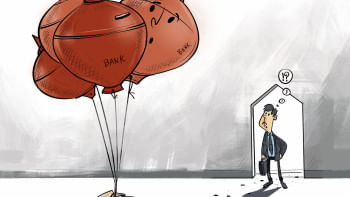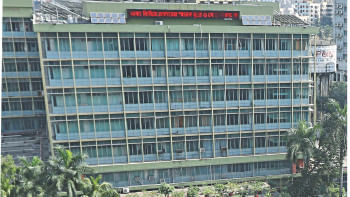Bancassurance for financial inclusivity

The life insurance sector in Bangladesh presently reflects a scenario of modest participation within the broader landscape of the country's growing economy. As reported by the Swiss Re Institute in 2022, insurance penetration in Bangladesh is only 0.40 percent. This figure is notably lower compared to neighbouring India, where insurance penetration is four percent.
Despite being one of the most densely populated countries globally and having a consistent economic growth trajectory, Bangladesh has a life insurance market that has yet to keep pace with its economic development.
Insurance companies operating in the country—81 entities comprising both state-owned and private insurers—hints at a competitive yet underutilised market space. The existence of such a large number of insurance providers in an economy of Bangladesh's size could indicate market fragmentation and the potential for more streamlined and efficient service offerings.
Compared with the country's GDP, the low insurance penetration rate indicates that the life insurance sector contributes less than one percent to the national GDP. This small contribution is telling of the untapped potential in the sector, which, if harnessed effectively, could bolster the financial services industry and provide safety nets to a larger population segment.
The government's recent endorsement of bancassurance represents a significant transformation in the financial services sector, far exceeding a simple policy update. This innovative decision to permit banks to offer insurance products is poised to change Bangladesh's financial services landscape fundamentally. The move also signals a new era in the financial sector, where the conventional boundaries between banking and insurance services are blurred, paving the way for a more integrated and customer-centric approach in financial dealings.
Bancassurance, an innovative model blending banking and insurance, has recently been approved by the regulators in Bangladesh. This allows banks to offer insurance products, leveraging their established infrastructure and customer trust. It also addresses key challenges in the insurance sector, such as making insurance more accessible, building consumer trust, and improving financial literacy.
In Bangladesh, banks enjoy a robust network and a relatively higher degree of public trust than insurance companies. By leveraging this trust and reach, bancassurance can significantly enhance insurance penetration in the country, especially in rural and underserved areas.
One of the critical hurdles in insurance uptake has been the need for more trust and understanding among potential consumers. With banks at the forefront of bancassurance, there's a unique opportunity to bridge this gap through the 11,200 branches of the banking network across the country. Consumers are more likely to engage with and understand insurance products when their trusted banking institutions offer them.
Banks also play a pivotal role in educating their customers about the importance and benefits of insurance. Given the existing insurance literacy gap in Bangladesh, banks can utilise their touchpoints to disseminate crucial information—making insurance decisions more informed and less intimidating for the average consumer.
With the introduction of bancassurance, we can expect to see more tailored insurance products to complement existing banking services. This synergy can lead to more holistic financial solutions, addressing a wider array of customer needs. Bancassurance could be a significant driver of financial inclusion, bringing more people under the umbrella of formal financial services. This inclusivity is not just beneficial for individuals, but is also crucial for Bangladesh's broader economic growth.
While the prospects of bancassurance are undoubtedly bright, its successful implementation is contingent upon several factors. Banks will need to upskill their workforce to handle this new domain effectively. Moreover, a robust regulatory framework tailored for bancassurance will be critical to safeguard consumer interests and ensure fair practices.
The government's move to approve bancassurance is an opportunity to make insurance more accessible, trustworthy, and understandable. However, the journey ahead calls for strategic collaboration between banks and insurance companies, supported by a strong regulatory framework. If steered wisely, bancassurance can give us a more inclusive, secure, and financially literate Bangladesh.
Dr Md Nurul Kabir is associate professor and chair of the Department of Accounting and Finance at North South University.
Quazi Tafsirul Islam is senior lecturer at the School of Business and Economics in North South University.
Views expressed in this article are the author's own.
Follow The Daily Star Opinion on Facebook for the latest opinions, commentaries and analyses by experts and professionals. To contribute your article or letter to The Daily Star Opinion, see our guidelines for submission.


 For all latest news, follow The Daily Star's Google News channel.
For all latest news, follow The Daily Star's Google News channel. 









Comments